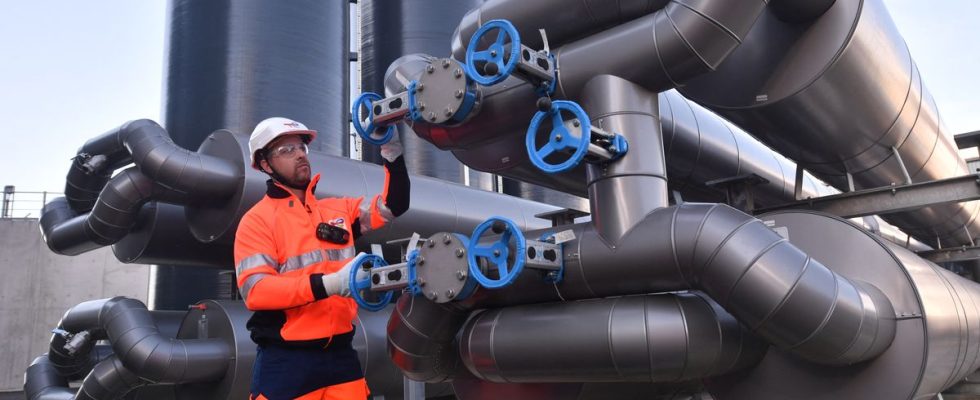“Pestilential” odors: in Mourenx, in the Pyrénées-Atlantiques, the largest methanizer in France, commissioned by TotalEnergies in January, exceeds local residents and around fifty people demonstrated their “fed up” Thursday in front of the biogas production plant, asking the group to act.
The French energy giant assures that it “will find solutions” and the site management recognizes a problem “linked to the storage of plant waste”: corn leaves. On its three-hectare tarmac site, called BioBéarn, TotalEnergies recovers the vast majority of waste from agriculture, of animal or plant origin, but also sludge from sewage treatment plants or household bio-waste.
Corn blamed by the company
“It has been unbearable all summer, the smell is so pestilential that you can’t even stay outside,” testified Michelle Marszalck, who lives 500 meters from the site. The origin of the problem “does not come from the methanization process”, affirmed Alban Stansfeld, director of operations for TotalEnergies, but from the use of corn “fresh and with a lot of juice which generated more odors than usually “. This pile of crushed material, covered with a tarpaulin, is located outside the buildings.
Between July and September, local residents made around a hundred reports. The company emphasizes that the heat and wind were “unfavorable”. “But it is up to us to adapt to these conditions,” acknowledged Alban Stansfeld, who admits that the “journey of odors” was not sufficiently understood by the group which “is learning to master it” .
Work will be undertaken “in the spring” to receive corn “better pressed and with less juice” and “optimize the pipes”, announced the manager. More suitable covering is also planned for next summer. “For the moment, there has been nothing concrete that leads us to be optimistic,” lamented Jean-Claude Bergé, president of the AEPS association, at the origin of the gathering.
New smells this year
In mid-October, the municipal opposition of Mourenx demanded from the prefect a “quantitative and qualitative” study of odors and a “plan” to reduce “these stench phenomena”. More broadly, on the scale of the Lacq basin, an Odor Observatory, managed by the Atmo Nouvelle-Aquitaine organization, makes it possible to report nuisances and possible malfunctions. According to its representative, Sarah Le Bail, reports relating to “the smell of fermentation” have taken on an unprecedented scale this year.
Induslacq, an association of industrialists, issues bimonthly information bulletins on the subject. “An essential tool to continue to progress,” underlined Yves Le Borgne, one of its members.

